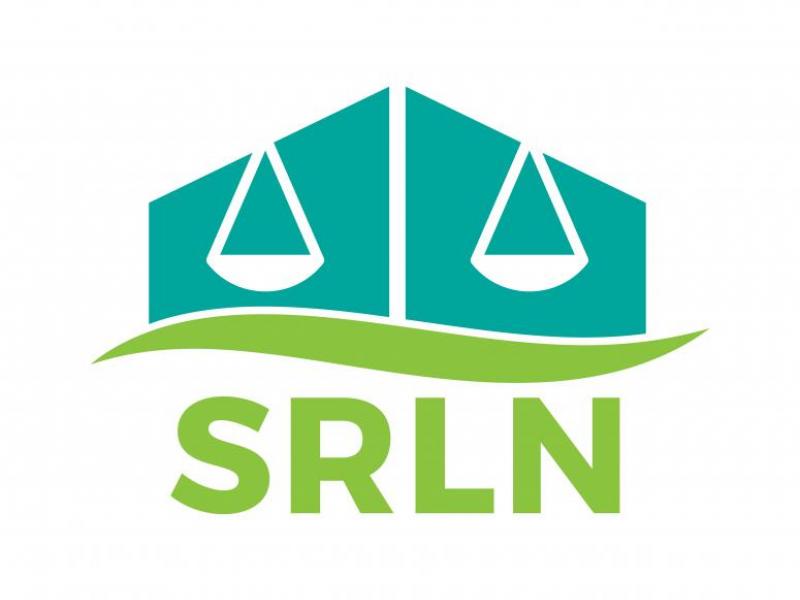
Document Author(s):
Year Published:
Topics:
State:
Region:
Tags:
RFP: SRLN Springboard Conference (2017)
Request for Training Proposals for the 2017 SRLN Conference
February 23-24, 2017 at the Judicial Council of California Building
San Francisco, California
About the Conference: As announced in August, due to the ever growing interest in self-represented litigant reforms, the Self-Represented Litigation Network (SRLN.org) is pleased to convene its first stand-alone annual conference to allow a deeper exploration of three thematic tracks: 1) Self-Help Service Delivery, 2) Re-Imagining Existing Roles & Activities, and 3) Bringing in the Litigant Voice. SRLN invites a wide range of collaborators to join us in exploring successful and evidence based strategies, as well as developing new thinking and initiatives for providing 100% access to justice. We are especially delighted to be joined by the California Family Law Facilitators and Self-Help Centers, and present our conference in affiliation with the Judicial Council of California.
This conference is appropriate for lawyers, judges, clerks of court, self-help center professionals, librarians, social services providers, language access experts, researchers and academics, technologists, funders and other allied professionals. Visit our 2017 SRLN Conference page for up-to-date information. We invite you to submit a session proposal that addresses SRLN’s goal of expanding access to justice from any of myriad perspectives committed to transforming the legal system to improve access, particularly to those who have traditionally not had access to legal representation.
Please be sure to read the Proposal Guidelines below before you create your session proposal. Once you are ready to submit your proposal on our web-based platform, please complete this form.
| Submit your session proposal on the web form no later than November 15, 2016. The Planning Committee will make its final selections and notify session coordinators by December 9, 2016. For more information about the RFP process or the conference, please contact [email protected] |
Proposal Guidelines: the Planning Committee will review submitted proposals with the following considerations:
- Relevance to increasing access to justice to individuals with legal needs, regardless of legal representation. In particular, proposals addressing how courts, the legal services community, self-help center staff, pro bono attorneys, interpreters, law librarians, social service providers, access to justice commissions, technologists and others can develop or enhance systems to improve access for all legal consumers, with special consideration for vulnerable populations.
- Commitment to problem-solving approaches that overcome challenges and barriers and incorporate evidence-based approaches including data collection, evaluation and research.
- How the approach builds and strengthens local and national networks of reformers, and contributes to the creation of a more consumer friendly legal system.
- A clear statement of the proposed session’s teaching and learning approach, clear take-home value, and practical how-to tactics (particularly if replicable in a range of settings and programs).
- Proposals should include a description, where relevant, of whether the proposed session is particularly aimed at emerging programs and states newer to the access to justice ecosystem, or advanced programs ready for more complex strategies and discussions.
- Proposals should fall into one of the following tracks:
Track 1: Self-Help Centers & Services
- Emerging programs
- Advanced programs
Examples for illustration only:
- Considerations and best practices for starting a self-help program
- Structuring self-help services to address litigant population’s needs
- Efficiency and effective service delivery strategies
- Providing linguistically competent services
- Understanding unconscious bias in service delivery
- Court and process simplification
- Role of self-help in 100% access
Track 2: Re-Imagining Existing Roles and/or Activities
List for illustration only:
- Judges & Neutral Engagement
- Case Management
- Courtroom Services
- Law Schools
- Administrative Offices of the Courts
- Local Network Building
- Non-Lawyer Professionals
- Librarians
- Clerk of Courts
- Bar Associations
- Access to Justice Commissions
- IOLTA and Bar Foundations
- Private Bar
- Technologists and impact on design, data, workflow, tools and resources
- Administrative Agencies & Hearings
- Federal Courts
- Other:
Track 3: Bringing in the Litigant Voice
Examples for illustration only:
- Customer-oriented designs
- Best practices for ensuring services meet users where they are at
- Meeting the needs of limited-English speaking users
- Understanding unconscious bias when working with legal consumers
- User-friendly and accessible
- Technologies to deliver services
Expectations: The Planning Committee may modify and/or consolidate similar proposals. If your proposal is accepted, the SRLN, LAAC and Judicial Council staff will provide guidance and assistance to help ensure a successful training program. Confirmed panelists will be expected to submit all materials, including presenter bios, and A/V needs in advance.
Organizations may submit more than one proposal.
Presentations should be 1 hour or 1.5 hours. However, if your particular proposal would lend itself more appropriately to a half-day or 3 hours (possibly divided into two 1.5 hour sessions), we encourage you to submit it and delineate the proposed format and desired length in the appropriate section of the Request for Proposal.
Conference Registration and Travel Expenses: Panelists are expected to cover their own costs, although a limited number of scholarships may be available.
Visit our 2017 SRLN Conference page for up-to-date information.